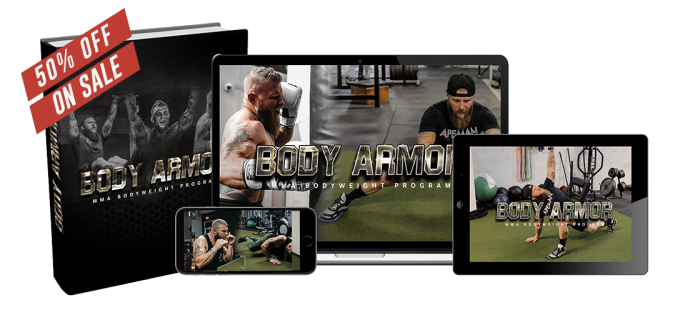 What’s it like to be a professional MMA fighter? One things for sure – it isn’t easy. Life revolves around training and staying in shape, and even outside of training camp, most fighters eat a healthy diet and treat training like a full-time job.
What’s it like to be a professional MMA fighter? One things for sure – it isn’t easy. Life revolves around training and staying in shape, and even outside of training camp, most fighters eat a healthy diet and treat training like a full-time job.
Every fighter is different when it comes to how they train and what they eat, but here is a typical training schedule and diet:
Training Schedule
The toughest part of MMA training is that the sport requires a bit of everything in terms of athleticism. It’s not enough to be the strongest or the most skilled, as fighters need to be well-rounded. That means fighters must balance skills training in every discipline (striking and grappling martial arts, along with a blend of the two) and follow a strength and conditioning routine that develops explosive power and cardio.
Professional fighters usually train five or six days per week, with two to three training sessions per day. Each training session has one or two specific focuses, so a weekly schedule may look like this:
Monday
AM – Cardio and Weight-Training
PM – Brazilian Jiu-Jitsu and Wrestling
Tuesday
AM – Boxing and Muay Thai
PM – Brazilian Jiu-Jitsu and Wrestling
Wednesday
AM – Sparring
PM – Cardio and Weight-Training
Thursday – Same schedule as Tuesday
Friday
AM – Cardio and Weight-Training
PM – Boxing and Muay Thai
Saturday
AM – Brazilian Jiu-Jitsu and Wrestling
PM – Sparring
Training sessions may last anywhere from 1 ½ to 3 hours. While this is a standard schedule, training changes quite a bit during fight training camps, as fighters must train in a way that helps them peak on fight night, without injuring themselves.
Fighters don’t always have set routines. For example, UFC lightweight champion Conor McGregor prefers to train at more random intervals and try new training methods.
Diet
Much of a fighter’s diet comes down to personal preference, but fighters do typically eat healthy foods, with a focus on lean meats, fruits and vegetables. Protein shakes and protein bars are also common. Fighters have regular meals throughout the day, and post-workout meals to refuel after a tough training session.
Georges St. Pierre, the former UFC champion who fought at 170 pounds and walked around at about 190 pounds, would consume anywhere between 3,200 and 3,500 calories per day. That consisted of about 250 grams of protein, 350 grams of carbohydrates, and 100 grams of fat. His post-workout meals had high protein and carbohydrate content to help him regain energy, while his regular meals had high protein and fat content, but low carbohydrate content.
While most fighters like to drink protein shakes after a tough workout, UFC heavyweight Derrick Lewis prefers to end his training sessions with a nice plate of ribs. It’s probably not the best form of nutrition for immediately after a workout, but when you’re a heavyweight, you have some more latitude regarding what you can eat.
Fighters get much stricter with their diets when cutting weight before a fight. While limiting calories works when you need to lose those last couple pounds before weigh-ins, it’s not recommended for any longer than a couple days.
Other Supplements
Fighters use all kind of supplements to boost performance recover after training, although they have to make sure it’s approved to avoid failing a drug test. Common supplements include casein protein, caffeine, vitamin B complex, and fish oil.
One trend that has caught on with some fighters is vaping. Nate Diaz and Cain Velasquez are two of the most notable fighters to speak publicly about their use of CBD oil and how it benefits them. Another option with vapes is e cig juice. Although it’s different than CBD oil, many juices contain nicotine, which can help improve athletic performance.
It’s incredibly impressive how hard the top MMA fighters work, both in the gym and in the kitchen. While fighter training schedules and diets are intense, using them as a reference point is a great way to improve overall fitness.
by themmacorner.com
Get Body Armor: MMA Bodyweight Training Program
Click the photo below
